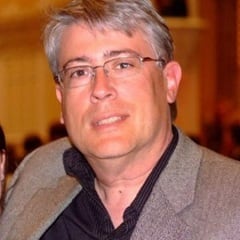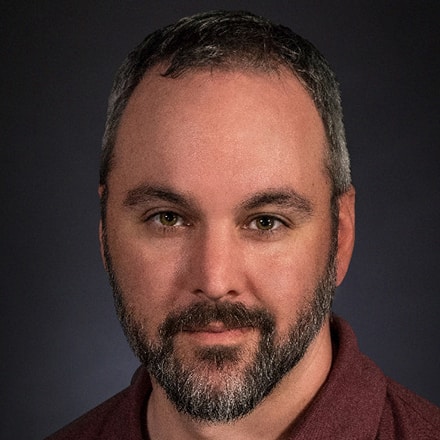Academic Spotlight: Senior Associate Dean of STEM Dr. Gary Savard
 Before becoming a senior associate dean of online STEM programs at Southern New Hampshire University (SNHU), Dr. Gary Savard spent more than 30 years building a career as a software engineer and architect. In addition to spending more than a dozen years as an adjunct instructor at SNHU, he has worked for private companies and the federal government, as well as for himself as the owner of two software companies.
Before becoming a senior associate dean of online STEM programs at Southern New Hampshire University (SNHU), Dr. Gary Savard spent more than 30 years building a career as a software engineer and architect. In addition to spending more than a dozen years as an adjunct instructor at SNHU, he has worked for private companies and the federal government, as well as for himself as the owner of two software companies.
Recently, we asked him some questions about his background and interest in higher education as well as how he connects with online students.
Can you tell us about your professional background?
I am a former U.S. Air Force officer and have also been in the software engineering career field for over 30 years. In my career, I have been a software engineer, software architect and systems engineer. I have worked for multiple large companies and the federal government building large scale software solutions. I have owned two software companies that specialized in custom solutions for government and private industry, as well as worked with angel capitalists and other engineers to help mentor technical start-ups.
What first drew you to higher education?
I have always wanted to give my knowledge to new engineers and found that I could work as an adjunct instructor and do that. My adjunct work turned into a role at another university where I was in charge of their software engineering degree and interim for several others. I also managed their technical majors at multiple international campuses. I started with SNHU about 14 years ago as an adjunct. I have also worked as a subject matter expert and academic partner. Three years ago, I was hired as associate dean for online computer science.
What aspects of your own education have been influential in shaping your career in academia?
Much of my past experience with the education process has been influential. I remember those who made a difference when I was a student and try to emulate their techniques. On the other hand, I remember those who hindered and make things difficult and try to avoid emulating them.
What attracted you to this field of study? What keeps you excited about it?
I really fell into engineering. My goal as a teen was to become an Air Force pilot. That role requires a technical degree, and I was in physics and moved into computer science. The enthusiasm that I have for this field lies in its rapid pace and perpetual change.
How have you found ways to effectively connect with students?
I have found ways to connect with most students through mentorship. I may be an instructor, but I am also a mentor with a great deal of experience and advice that I am happy to share with students. I volunteer my personal contact information for students who want to talk about school, their careers and anything else that comes up.
What brings you the greatest joy in your work as an associate dean?
It has to be the people I work with and our mission of boosting folks who never had a chance to get ahead.
What do you feel is unique about the faculty and students you work with?
The STEM faculty is extremely dedicated and engaged with their students. Our students are very appreciative of the chance that they have been given to have a better life through education.
What does SNHU’s mission to transform the lives of learners mean to you?
I think I said it in the last question, but it is the reason I am still in academia and not working in the field where jobs are more lucrative. I have a clear mission with SNHU.
Outside of work, what’s something you’re passionate about or really enjoy doing?
I love to woodwork, fly and ride motorcycles, but my favorite thing is spending time with my grandkids!
A degree can open doors. Choose your program from 200+ SNHU degrees that can take you where you want to go.
Explore more content like this article

What is Environmental Science?

Academic Spotlight: Tyra Davey, Associate Dean of STEM Programs

What Does an Environmental Scientist Do?
About Southern New Hampshire University

SNHU is a nonprofit, accredited university with a mission to make high-quality education more accessible and affordable for everyone.
Founded in 1932, and online since 1995, we’ve helped countless students reach their goals with flexible, career-focused programs. Our 300-acre campus in Manchester, NH is home to over 3,000 students, and we serve over 135,000 students online. Visit our about SNHU page to learn more about our mission, accreditations, leadership team, national recognitions and awards.


